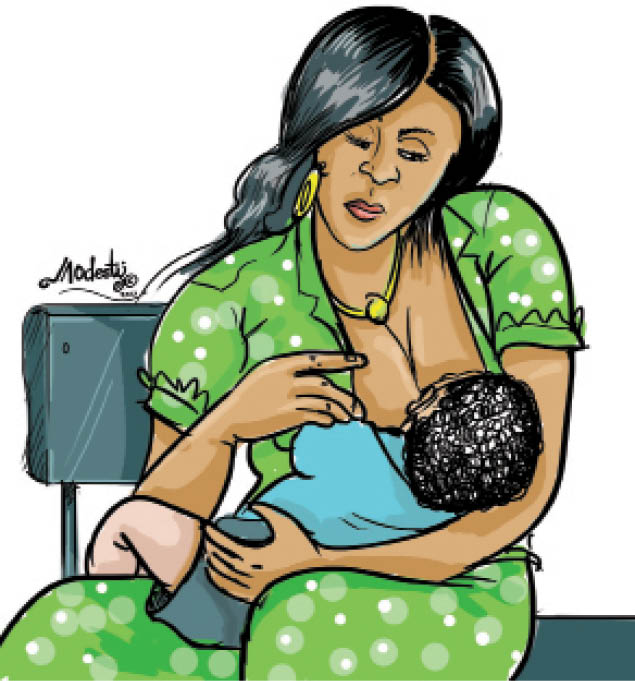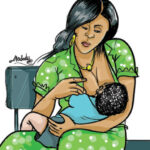Hafsat Bako, a mother who is currently exclusively breastfeeding, says exclusive breastfeeding has helped her baby to remain healthy.
She said she noticed a significant difference in the health of her exclusively breastfed child compared to her other kids who were not.
She also said her baby has not been coming down with diarrhoea or other infectious diseases she saw in babies that are not solely breast-fed in her neighbourhood.
She advised mothers to exclusively breastfeed make their children healthy and grow well.
- Nigeria set to lead electric vehicle revolution with $275M facility
- We need prayers not protests – Coalition
She said, “The medical experts tell us breast milk is safe, clean, and contains antibodies which help protect the baby against many common childhood illnesses. I have seen it myself. So all mothers should adopt exclusive breastfeeding,” she said.
A first-time mother Emilia Joseph said she is very happy with the benefits she observed from exclusively breastfeeding her baby.
She said that breast milk aids digestion, unlike anything else you feed a baby with.
“Breast milk is more easily digested. Breastfed babies are rarely constipated and are less likely to get diarrhoea. It’s natural and has no waste products,” she said.
Aisha Bello, also a first-time mother, said breast milk has important ingredients that build baby’s immune system which are not found in any baby formula.
She advised mothers to adopt exclusive breastfeeding, emphasising that it is the perfect food to promote healthy growth and development.
The World Health Organisation (WHO) recommends that infants be exclusively breastfed for the first six months of life to achieve growth, development and health.
Exclusive breastfeeding means that the infant receives only breast milk. No other liquid is given, not even water, with the exception of oral rehydration solution or drops/syrups of vitamins, minerals and medicines.
The WHO and UNICEF recommend that children be initiated with breastfeeding within the first hour of birth and be exclusively breastfed for the first six months of life.
They said breastfeeding is one of the most effective ways to ensure child health and survival.
However, contrary to WHO recommendations, fewer than half of infants under six months old are exclusively breastfed.
According to the 2021 Multiple Indicator Cluster Survey/National Immunization Coverage Survey Report, only three out of every 10 children aged 0–5 months (34 per cent) are exclusively breastfed.
Medical experts say about 80,000 child deaths are reported to be prevented annually when optimal breastfeeding is practiced, and that mothers also benefit enormously from breastfeeding.
UNICEF Nigeria’s Chief of Nutrition Nemat Hajeebhoy said breast milk has the required vitamins, minerals and hormones that are needed for the child’s growth to be complete.
Also, UNICEF nutrition specialist, Philomena Irene, said exclusive breastfeeding provides all of the fluid and nutrients needed for optimal growth and development during the first six months.
“Breastfeeding helps to prevent malnutrition in all its forms, ensures food security for infants and young children, and helps to bring people and nations out of the hunger and poverty cycle. It is therefore a foundation of life. Protecting promoting and supporting breastfeeding is vital to a more sustainable world,” Irene said.
Dr Victor Ogbodo, Alive & Thrive Nigeria’s Programme Director, said the rate of exclusive breastfeeding in Nigeria is still far short of the 50 per cent target by 2025 set by the World Health Assembly.
He said exclusive breastfeeding — feeding infants breastmilk only during the first six months of life — is one of the essential actions for infant development and survival.
“We’ve made significant progress in recent years,” he said. “But we can and must do more.”

 Join Daily Trust WhatsApp Community For Quick Access To News and Happenings Around You.
Join Daily Trust WhatsApp Community For Quick Access To News and Happenings Around You.


